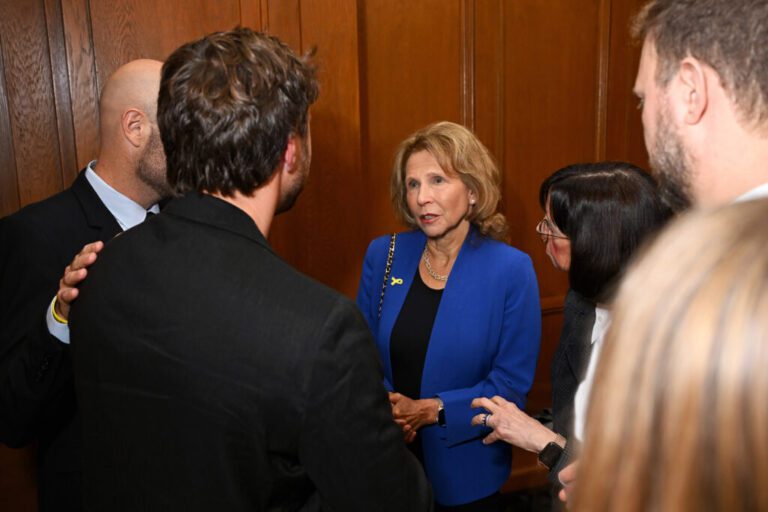Shari Redstone Discusses CBS News’ Editing Controversy Amid Trump Lawsuit
The matriarch of the Redstone family, which recently held sway over Paramount Global and CBS News, has shed light on the circumstances surrounding President Donald Trump’s $20 billion lawsuit against 60 Minutes. Shari Redstone revealed her concerns that a trial could expose the editorial choices made during an interview with President Joe Biden, in which he appeared "drowsy" and needed prompting to respond.
Background on the Lawsuit and Editing Controversies
Trump’s lawsuit stemmed from the editing decisions taken during Biden’s 2023 appearance on 60 Minutes, where he was portrayed as alert and coherent, despite some staff reports indicating otherwise. This interview followed closely after a session with Special Counsel Robert Hur, who cited Biden’s forgetfulness as a reason not to prosecute him for mishandling classified documents.
Key Points of the Lawsuit:
- Settlement Agreement: On July 1, CBS paid $16 million to resolve Trump’s claims regarding the editing of Vice President Kamala Harris’ October 2024 interview. Critics labeled this move as a strategic compromise to gain favor with the Trump administration.
- Judicial Context: The lawsuit was handled in Texas, under Judge Matthew Kacsmaryk, a Trump appointee, and CBS’s attempts to move the case to New York were unsuccessful. The choice of venue raised concerns about potential jury bias.
Redstone’s Insights on Settlement Motivations
In a recent profile in the New York Times, Redstone expressed that settling the lawsuit was in CBS’s "best interest." She highlighted the editorial processes that could have been scrutinized during a trial, potentially casting the network in an unfavorable light.
Concerns over Biden’s Interview:
- Editing Choices: Redstone noted the decision to omit parts of Biden’s interview where he appeared "drowsy" could have reinforced accusations that CBS disproportionately favors Democratic narratives.
- Trial Risks: With the trial set for September 2026, Trump’s legal team had ample time to investigate CBS’s editorial practices, which could lead to significant embarrassments for the network.
Redstone’s Reflection:
Redstone mentioned, “The decision to settle was never as black-and-white as people assumed." This indicates the complexity and potential repercussions of the trial versus settling.
CBS’s Editorial Challenges and Internal Strain
CBS News faced backlash that extended beyond Trump’s lawsuit, especially regarding its portrayal of significant political figures. An unnamed CBS staff member disputed Redstone’s characterization of the Biden interview, asserting that he did not need prompting in his responses.
Internal Voices of Dissent:
- Catherine Herridge, a former CBS reporter, suggested the edited Biden interview warranted further examination to ascertain if it misrepresented the original footage.
Management Decisions:
The refusal by CBS News to release a complete transcript of Harris’s interview was highlighted as a key factor fueling Trump’s lawsuit. Redstone expressed frustration over perceived anti-Israel bias in segments aired on 60 Minutes.
Change in Leadership:
Following dissatisfaction regarding editorial standards, CBS CEO George Cheeks appointed Susan Zirinsky to ensure fairness in reporting. Bill Owens, the executive producer, eventually resigned, indicating tensions surrounding editorial independence.
Speculations Around CBS and Skydance Media Deal
Despite speculation that the settlement was a calculated move to secure FCC approval of the Paramount-Skydance merger, Redstone clarified that she did not see a direct connection. Nevertheless, concerns emerged regarding potential undisclosed agreements involving conservative advertisements during the settlement process.
Key Takeaways:
- Denial of Side Deals: Skydance representatives denied the existence of a side deal related to the lawsuit, deeming the reports as unfounded. However, the company maintains that it adhered to anti-bribery laws.
Conclusion: Navigating Complex Waters
Redstone’s reflections reveal the intricacies of navigating media influence and political narratives in contemporary society. Her candid insights illuminate the mounting pressures faced by media organizations in balancing informational integrity with external pressures—especially during tumultuous political times.
For further reading on media controversies, visit NPR and Reuters.
This article provides a comprehensive overview of Shari Redstone’s comments and the ongoing controversies related to CBS News, highlighting key events and critical voices in the narrative.


